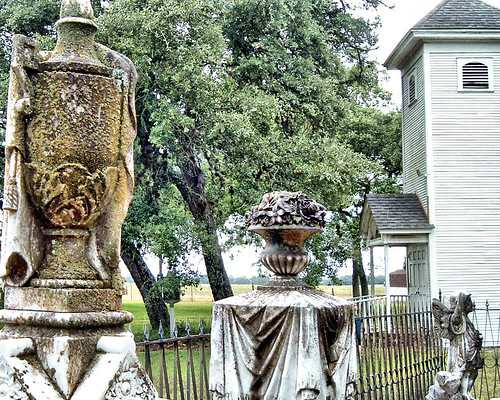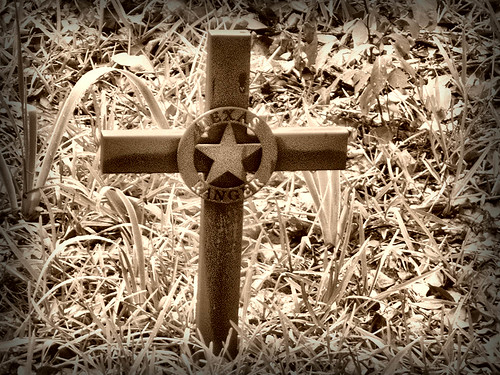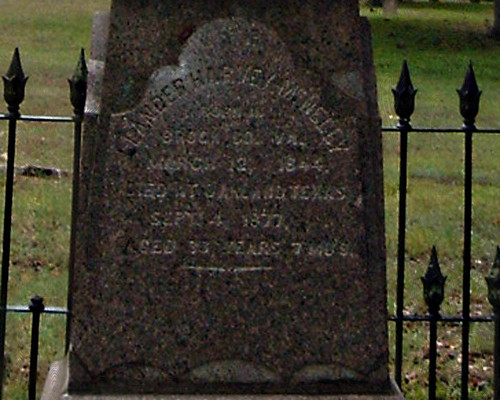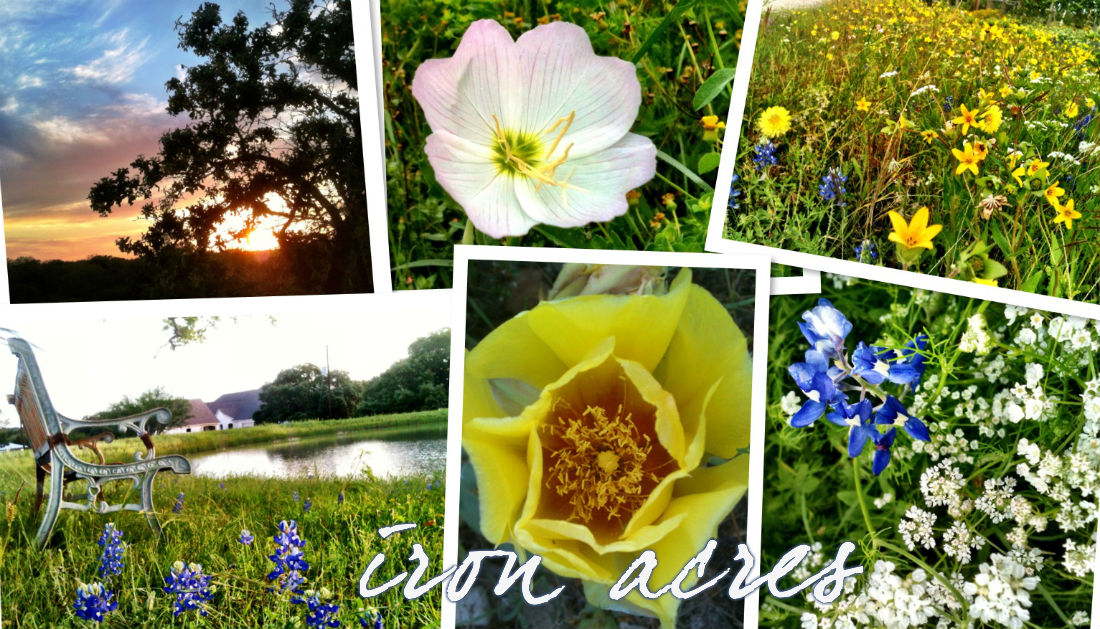
Call me contrary, call me perverse, or call me contrary AND perverse, but I like cemeteries. Perhaps it's because when younger I spent weekends with Grandmother. Grandfather died when I was four years old. I don't remember his voice, just the hospital bed in the formal dining room where he had once entertained the who's who of a large Texas city, and a nurse who visited him. She drove a Nash Rambler Coupe, and gave me a kitten.
On Sunday afternoons, Grandmother and I would drive to the cemetery. We would bring a bag of old bread to feed the ducks that frequented the pond across from the site where Grandfather was buried. And Grandmother taught me a solemn incantation that caused the grass over the grave to fold its leaves, "sleepy grass, sleepy grass, go to sleep, go to sleep." I think the "grass" was something called mimosa sensitiva, whose tiny fronds fold when touched. I was instructed to say the "magic words" while stroking the leaves.
For a young child who had not known the sorrows of loss, a cemetery was like a playground. Now that I am older, I can appreciate the beauty of the well manicured lawns and the history behind the stone memorials. Each one represents a mystery. Who were these people? What did they look like? What was their experience of the human journey?

In New York, we lived a block from from an old cemetery. The children and I were fond of riding our bikes onto the narrow, graveled cemetery roads and reading the old tombstones. The epitaphs on the older stones were poetic and often religious, the ones on the newer stones, informational. A particularly memorable one read, "Here lies (name). She bore 3 sons and many grudges." What kind of a mother was this woman to elicit an epitaph like that?

For me, cemeteries are oases of quiet, serene natural beauty in the face of an increasingly manic world. And they are full of history. My Dear Professor's favorite cemetery is off the beaten path near a small Texas town. It is the final resting place of a Texas Ranger name Leander McNelly, the captain of a special forces unit of the Texas Rangers in the late 1800s. McNelly was given the task of cleaning up the illegal shenanigans and stopping the cattle raids transpiring on both sides of the Texas-Mexico border along the Rio Grande River. Although his methods were sometimes questioned, they were always effective.

McNelly's gravesite, and those of a few more humble folk, are cared for by one man who is approaching retirement age. For him it is a labor of love--love of Texas history, and love for his son who is buried in a newer section near the old Methodist church on the grounds.
On a small country road in the heart of Texas is a special plot of earth where sorrow and history, mortality and immortality meet to offer, under the shade of liveoak trees, a place of solace and reflection.
I like cemeteries.
